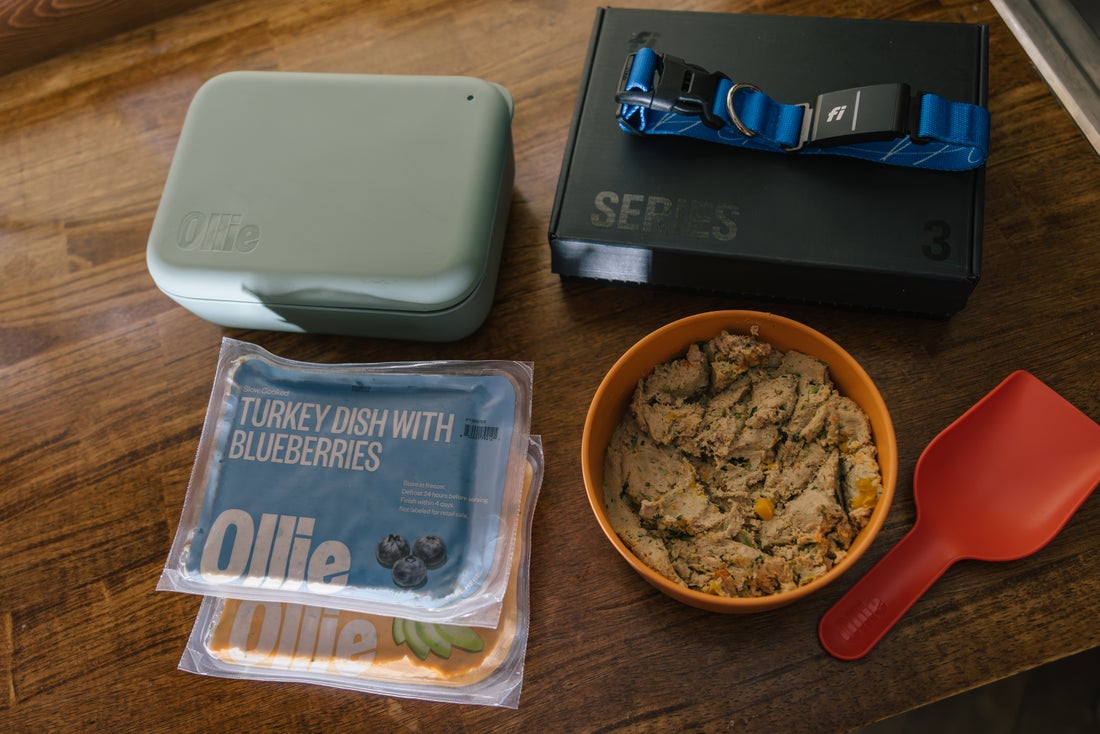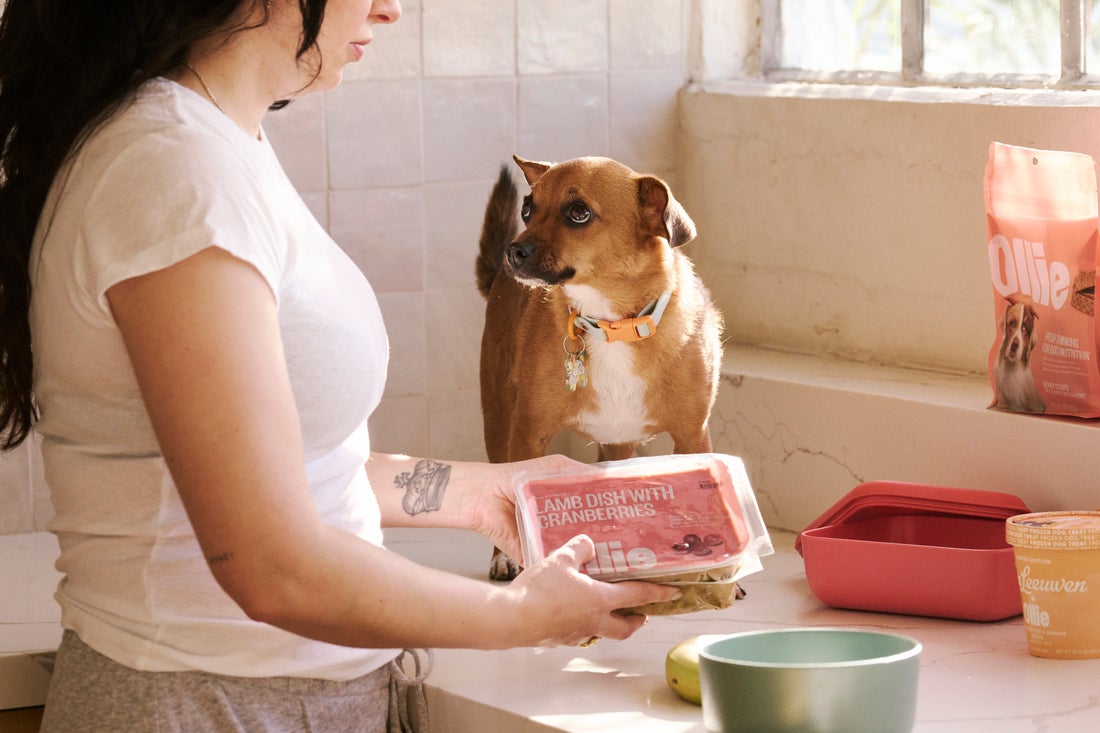Hey Ollie blog readers! We’re offering you an exclusive 60% OFF your starter box! Try now!
Ranking in the top 40 of the American Kennel Club’s most popular breeds, the Maltese makes a great companion for many reasons. Weighing in at under 15 pounds, the Maltese is an ideal choice for apartment dwellers and families alike.
They are playful pups with delightful personalities and do well in a variety of environments. While these are great reasons to add a Maltese to your family, you may be wondering about common health concerns with this breed of pup. We’ve broken down some of the most common health issues – and how to help make sure your pup is as healthy as they can be.
The good news is that Maltese tend to be healthy and live for about 12-15 years on average. The national breed club, The American Maltese Association, does recommend that all Maltese receive a cardiac exam as well as have their patella’s checked by a vet.

Common Maltese health conditions
Heart Murmurs (typically in older Maltese)
As Maltese age, they are prone to heart murmurs. These are usually diagnosed by your vet when you go for an annual wellness exam. This is another reason why annual exams are so important as your pup ages! Murmurs are given a ‘grade’ based on severity. Grade 1 which is barely audible may have no symptoms and require no treatment. Your vet will monitor your dog and recommend treatment when it becomes appropriate to do so. The American Maltese Association says “Although an acquired heart murmur in an older dog can be associated with other types of heart disease, in most cases it is a condition in and of itself and most dogs do very well. The important thing is to be diligent with regular exams and be observant of any unusual signs that may indicate a hidden problem.”
Hydrocephalus
Hydrocephalus also known as water on the brain, is most common in smaller toy dogs as well as brachycephalic breeds. Dogs can be born with this condition or it could develop as a result of illness or trauma. Severely affected puppies generally do not survive very long, while less affected puppies may not show signs of illness right away. Symptoms like loss of coordination, vision problems, aimless walking or of the skull may appear gradually or increase severity. If you notice any of these conditions or behaviors in your dog, have your vet check them out right away.
Inflammatory Bowel Disease
The most common symptoms of inflammatory bowel disease are diarrhea and vomiting. If your pup is experiencing these symptoms consistently it is important to rule out IBD. Your vet may suggest taking a biopsy of your dog’s bowel tissue. Biopsies are important to rule out other causes of diarrhea and vomiting which can include: dietary hypersensitivity, lymphoma, histoplasmosis (a fungus). Bacterial infection or overgrowth, and malassimilation problems. If your pup is diagnosed with IBD your vet will help you find a diet that is gentle on your pet’s stomach. This may require some patience on your part as there may be some trial and error involved to find the right diet.
White Shaker Dog Syndrome
White Shaker Dog Syndrome, also known as idiopathic cerebellitis, is a rare, strange affliction that causes generalized tremors in young dogs (9 months to 3 years old). It occurs predominantly in small white dogs, although it is seen in non-white coated breeds as well. This condition is usually treated with a steroid like prednisone or diazepam if symptoms are severe. There is no known cause but it is assumed to be caused by inflammation in the brain. Although the prognosis for dogs with this condition is good, it is not recommended that these dogs be bred due to the fact that the cause is unknown.
Luxated Patellas
One of the most common conditions in Maltese and other toy dogs is luxated patellas. This is a condition where the dog’s kneecap literally slips out of the groove causing it to become dislocated. Like heart murmurs, luxated patellas are graded. Milder cases are graded I and II and generally do not require surgery. More severe cases graded III or IV, which is permanent dislocation can require surgical treatment. If your pup has a milder case of luxated patella, keeping them at a healthy weight, avoiding slick surfaces and jumping can help maintain the health of the joint. The Maltese National Breed club does recommend the breeder examine all puppies for luxated patella as well as your vet should perform regular exams on your pup.
Collapsed Trachea
Two respiratory conditions that can affect the Maltese (as well as other toy dog breeds) are reverse sneezing and collapsed trachea. The former is generally not considered serious while the latter can be deadly. The main symptom of a collapsed trachea is a cough that is described as sounding like a goose honking. It can get worse with exercise, stress, or any form of excitement. Treatment generally includes managing symptoms. In more severe cases surgical options can be explored. If your dog is diagnosed with a collapsed trachea it is important to know that the condition can cause secondary health issues so keeping up with regular vet appointments is critical.

How to ensure the health and wellbeing of your Maltese
Work with a reputable breeder or rescue
When looking for a puppy it is important to do your homework. Ask the breeder or rescue lots of questions. A rescue or shelter re-homing a dog may have less health and breed information than a breeder, but the dog was likely evaluated by a veterinarian on intake. When selecting a breeder do your homework. Research reputable breeders through the American Kennel Club and American Maltese Association. Ask questions about how many dogs are bred a year and their health and genetic history. If the breeder provides vague answers or won’t let you see the parents before making a purchase, you may want to move on.
Establish a relationship with a vet and schedule regular wellness exams
As we described, a lot of conditions that affect the Maltese can worsen with age. That is why it is important for your pup to see the vet regularly. Your vet will be able to monitor any health conditions and provide appropriate treatment so that conditions don’t become more severe and impact your dog’s quality of life.
Maintain a healthy diet and regular exercise routine for your dog
One of the best ways to keep your Maltese healthy is to provide adequate nutrition and exercise for your pup.
When exercising with your Maltese make sure you are not on slippery surfaces or asking them to jump too much or too high to protect their patellas! If you’re not sure what type or how much exercise is appropriate for your pup, talk to your vet.
When it comes to nutrition, Ollie has your back. Our delicious Recipes are great for all breeds, including the Maltese.
We work with veterinary nutritionists to choose human-grade ingredients that support your dog’s health and wellbeing. From quality proteins to superfood ingredients like blueberries, spinach, and fish oil our recipes help combat common pup problems like inflammation and help keep your dog fueled for the long run.
We consider breed, size, age, activity level, and weight when creating the perfect meal plan for your dog. Take our quiz to see which recipes are right for your pup!
The Ollie blog is devoted to helping pet parents lead healthier lives with their pups. If you want to learn more about our fresh, human-grade food, check out MyOllie.com.
Tagged As:

The nutrition your dog needs,
the food they want.

Enjoying our articles? Subscribe our Newsletters and get new articles directly to your inbox
You might also like
18 September 2025
5 MINS READ
Can I Rotate Fresh Dog Food Flavors?
Yes, it’s safe to rotate fresh dog food flavors, and many dogs actually benefit from the variety. At Ollie, we offer multiple fresh recipes, like Beef, Chicken, Turkey, Lamb, and Pork so you can…
by Ollie Pets
18 September 2025
5 MINS READ
Is Fresh Dog Food Safe During Power Outages?
Fresh dog food is only safe during a power outage if it has stayed cold, specifically, below 40°F. Once the temperature rises above that point, bacteria can start to grow, and the food may no lon…
by Ollie Pets
18 September 2025
5 MINS READ
How Do I Store Fresh Dog Food While Traveling?
If you’re bringing fresh dog food on the road, keeping it cold is key. The best way to store it is in a cooler with ice packs or a travel freezer. At Ollie, our vacuum-sealed fresh food stays good…
by Ollie Pets







